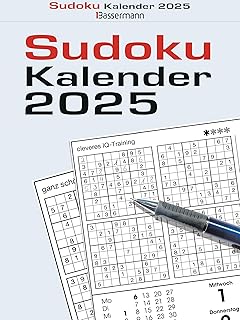Sharpen Your Mind: Ultimate IQ Puzzle Challenges for Brain Power
In our fast-paced world, a sharp, agile mind isn’t just an asset—it’s a necessity. Whether you’re navigating complex work projects, learning new skills, or simply aiming for better memory and focus, boosting your brain power is key. And what better way to do it than through the engaging, rewarding world of IQ puzzle challenges?
This comprehensive guide will dive deep into how specific puzzles can enhance your cognitive abilities, backed by science, and provide actionable tips to integrate them into your daily routine. Get ready to unlock your brain’s full potential!
What Are IQ Puzzles and Why Do They Matter?
IQ puzzles are more than just fun pastimes; they are carefully designed mental exercises that stimulate various cognitive functions. While often associated with intelligence quotient (IQ) tests, their benefits extend far beyond a score. These challenges push your brain to think critically, solve problems creatively, and process information efficiently.
Beyond the Score: The Real Benefits of Puzzle Solving
- Enhanced Problem-Solving Skills: Puzzles demand strategic thinking and the ability to break down complex issues into manageable parts.
- Improved Memory: Many puzzles require recalling patterns, sequences, or previously learned rules, strengthening both short-term and long-term memory.
- Increased Focus and Concentration: Engaging with a puzzle demands sustained attention, helping to train your mind to ignore distractions.
- Boosted Cognitive Flexibility: Puzzles often require shifting perspectives or trying different approaches, fostering adaptability in thinking.
- Stimulated Creativity: Finding novel solutions to unique challenges can spark innovative thinking.
- Reduced Stress: The focused nature of puzzle-solving can be a meditative activity, offering a healthy escape from daily pressures.
The Science Behind Brain Training: Neuroplasticity in Action
The idea that you can “train” your brain isn’t just wishful thinking; it’s rooted in the scientific principle of neuroplasticity. This incredible ability of the brain allows it to reorganize itself, form new neural connections, and strengthen existing ones throughout life. When you engage in challenging mental activities like IQ puzzles:
- New neural pathways are created.
- Synapses (connections between neurons) become stronger.
- Different areas of the brain, responsible for logic, memory, and spatial reasoning, are activated and exercised.
Consistent engagement with puzzles acts like a workout for your brain, leading to a more efficient, resilient, and adaptable cognitive system.
Types of IQ Puzzles to Boost Your Brain Power
A diverse range of puzzles targets different cognitive areas. To achieve holistic brain development, it’s beneficial to engage with various types.
1. Logic and Deduction Puzzles
These puzzles challenge your ability to follow rules, identify patterns, and draw conclusions based on given information.
- Sudoku: Fills a 9×9 grid with numbers so that each column, row, and 3×3 subgrid contains all digits from 1 to 9.
- Nonograms (Picross): Uses numbers to reveal a hidden pixel art image on a grid.
- Logic Grid Puzzles: Requires deduction from a series of clues to match items in different categories.
- Cryptograms: Deciphering a message where each letter has been replaced by another.
2. Spatial Reasoning Puzzles
These challenges improve your ability to visualize and manipulate objects in space.
- Tangrams: Arranging seven flat shapes (tans) to form specific designs.
- Jigsaw Puzzles: Assembling interlocking pieces to form a complete image.
- Rubik’s Cube & Similar Mechanical Puzzles: Manipulating 3D objects to achieve a target configuration.
- Mazes: Navigating a path from start to finish.
3. Verbal Reasoning Puzzles
Focuses on language, vocabulary, and understanding complex relationships between words.
- Crossword Puzzles: Filling a grid with words based on clues.
- Anagrams: Rearranging letters of a word or phrase to form new words.
- Word Ladders: Changing one letter at a time to transform one word into another, with each step forming a valid word.
- Scrabble & Word Games: Building words strategically.
4. Mathematical and Numerical Puzzles
Engages your numerical aptitude, calculation skills, and logical reasoning with numbers.
- Kakuro (Cross Sums): Fills a grid with numbers such that each block adds up to a given sum, similar to crosswords but with numbers.
- KenKen: A grid puzzle that combines arithmetic and logic.
- Magic Squares: Arranging numbers in a grid so that the sum of each row, column, and main diagonal is the same.
- Brain Teasers (Mathematical): Riddles or problems requiring clever numerical solutions.
5. Memory Puzzles
Directly targets your working memory and recall abilities.
- Matching Games (Concentration): Flipping cards to find pairs.
- Simon Says/Memory Sequence Games: Recalling and repeating a sequence of lights or sounds.
- Memory Grids: Remembering the location of specific items on a grid.
How to Integrate Puzzles into Your Daily Routine
Making brain training a habit is crucial for long-term benefits. Here’s how to do it effectively:
- Start Small: Begin with 10-15 minutes a day. Even short, consistent sessions are more effective than sporadic long ones.
- Vary Your Puzzles: Don’t stick to just one type. Rotate between logic, spatial, verbal, and numerical puzzles to engage different brain areas.
- Make it a Habit: Link puzzle-solving to an existing daily routine. For example, solve a Sudoku with your morning coffee, or do a crossword during your commute.
- Use Apps and Online Resources: Many excellent brain training apps (e.g., Lumosity, Elevate, Peak) and websites offer a wide variety of puzzles and track your progress.
- Challenge Yourself Appropriately: Choose puzzles that are challenging but not overly frustrating. If it’s too easy, you’re not growing; if it’s too hard, you might give up.
- Track Your Progress (Optional): Seeing your improvement can be a powerful motivator. Many apps do this automatically.
- Join a Community: Discussing puzzles with others, or even competing in friendly challenges, can add an extra layer of engagement.
- Don’t Be Afraid to Fail: Getting stuck is part of the learning process. It means your brain is working hard to find new solutions.
Beyond Puzzles: Holistic Brain Health
While IQ puzzles are fantastic, they are part of a larger picture of cognitive well-being. For optimal brain power, consider these complementary habits:
- Quality Sleep: Essential for memory consolidation and cognitive function.
- Nutrient-Rich Diet: Foods rich in omega-3s, antioxidants, and vitamins support brain health.
- Regular Physical Exercise: Boosts blood flow to the brain and promotes the growth of new brain cells.
- Continuous Learning: Picking up new skills (a language, an instrument) creates new neural pathways.
- Social Interaction: Engaging with others challenges your communication and emotional intelligence skills.
Conclusion: Your Journey to a Sharper Mind Starts Now
Embracing IQ puzzle challenges is an accessible, enjoyable, and scientifically proven way to boost your brain power. By consistently engaging in these mental workouts, you can improve problem-solving, memory, focus, and overall cognitive flexibility.
Don’t wait to give your brain the attention it deserves. Pick a puzzle, set aside some time, and embark on your journey to a sharper, more powerful mind today. Your future self will thank you!
Related Amazon Products

BePuzzled |Cylinder Hanayama Metal Brainteaser Puzzle Mensa Rated Level 4, for Ages 12 and Up

Sudokuk Calendar 2025 The Popular Tear-Off Calendar with 800 Number Puzzles

Cast Metal Brain Teaser Puzzle Metal Puzzle Brain Teaser Exploration and Thinking Toy Intellectual Teaching (Two Rings) GINFH
As an Amazon Associate I earn from qualifying purchases.







